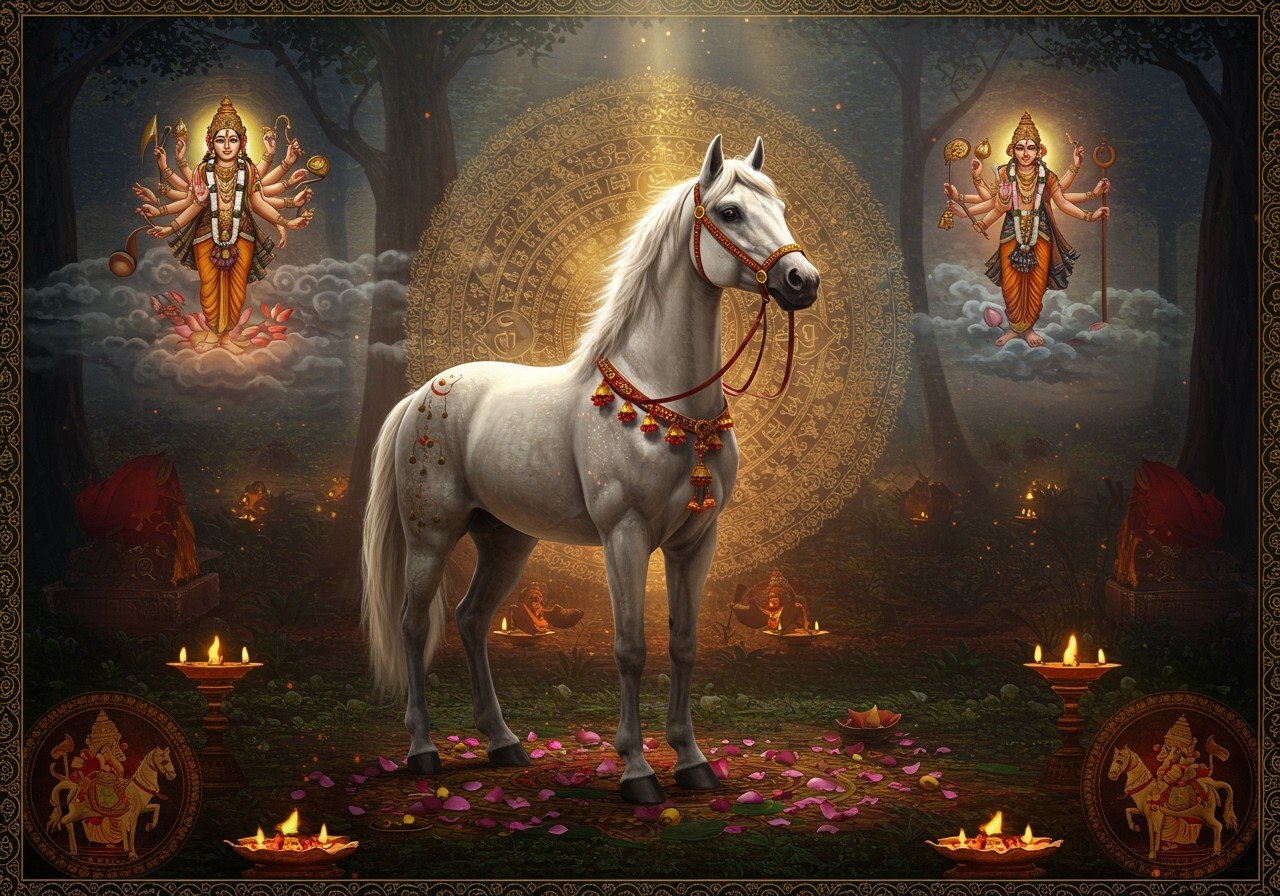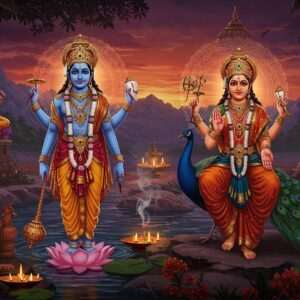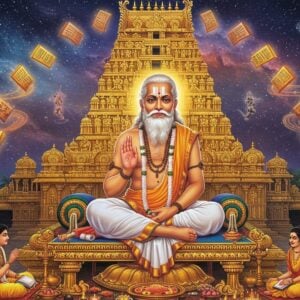
In Hinduism, the term ‘Ashva’ holds profound cultural and spiritual meaning. Rooted in ancient Vedic texts, Ashva plays a significant role in various rituals and mythology. Understanding its origins and evolving interpretations offers insight into the traditions cherished by many, particularly those who value the blend of tradition and modern convenience. For those seeking to deepen their understanding of Hindu traditions and rituals, exploring the teachings of Tulsi Peeth can be an enlightening journey.
The Etymology and Vedic Significance of Ashva
The word ‘Ashva’ originates from Sanskrit, where it primarily means ‘horse.’ This term has gracefully transitioned into modern Hindi, retaining its core meaning while embracing additional connotations. In the sacred verses of the Vedas, Ashva appears frequently, symbolizing speed, strength, and nobility. This linguistic journey reflects the broader cultural shifts within Hindu society. Grasping these shifts allows us to appreciate how Ashva embodies both historical continuity and the beautiful evolution of culture.
Within the Vedic scriptures, Ashva, the Sanskrit term for ‘horse,’ emerges with profound significance. The Rigveda, the oldest of the Vedas, extols Ashva as a symbol of power and the very essence of vitality. It portrays horses as magnificent creatures, embodying swiftness and strength, qualities that resonate with the divine energies that permeate the universe. The Ashvamedha Yajna, a grand Vedic ceremony, centers around the sacrificial horse, symbolizing the expansion of a ruler’s dominion and underscoring the belief that a king’s power is intertwined with divine favor. It is not merely a display of might, but a sacred act seeking blessings for prosperity and righteous authority. Meanwhile, the Upanishads offer a different perspective, using Ashva as a metaphor for the soul’s journey towards enlightenment. Just as a horse travels a physical path, the individual embarks on a spiritual quest, connecting Ashva to deeper philosophical themes concerning the nature of existence and consciousness. The epics, Ramayana and Mahabharata, feature Ashva alongside legendary figures like Rama and Arjuna, weaving the horse into narratives of heroism and moral dilemmas, reflecting its status as a noble companion. Ashva’s presence in these narratives underscores its symbolism of valor and righteousness.
Ashva’s Mythic Resonance and Ritual Significance
Hindu mythology often portrays Ashva as a divine steed, closely associated with deities like Surya, the Sun God, and the Ashvins, the celestial twins renowned for their healing abilities. This divine association elevates Ashva beyond a mere animal representation, imbuing it with cosmic principles. The tale of Uchchaihshravas, the celestial horse born during the churning of the cosmic ocean, embodies purity and divine grace. This mythical narrative highlights how Ashva symbolizes transcendental qualities deeply cherished in spiritual discourse. In various regional myths, Ashva embodies valor and swiftness, an emblem of courage and speed, often accompanying heroes on their epic quests. This reverence extends to the chariots of the gods, where Ashva serves as a vehicle of divine will, carrying forth celestial missions with unwavering resolve.
Ashva’s cultural footprint is vast. In Hindu rituals, invoking Ashva invites blessings of strength and prosperity. Temples often display Ashva imagery, carved into stone or painted with reverence, symbolizing power and protection. Horse fairs and festivals across India are not simply economic exchanges, but vibrant cultural celebrations honoring the enduring legacy of horses in Indian life. In modern Hindu weddings, the groom’s arrival on horseback is a tradition laden with symbolism. It represents valor and the groom’s readiness to embrace his marital responsibilities, connecting present-day customs to ancient practices. Just as ashrams hold deep spiritual significance within Hinduism, so too does Ashva. Learn more about the significance and meaning of ashrams in Hinduism.
Ashva in the Modern Age: A Timeless Legacy
Even today, Ashva’s symbolism continues to inspire. It resonates through literature, cinema, and media, captivating those who seek to reconnect with their cultural heritage. Urban Indians find solace in these traditional symbols, seeking a balance between modernity and their ancestral roots. Online platforms like poojn.in play a vital role in this resurgence, bridging geographical distances and making traditional Ashva-related items accessible globally. This digital revolution ensures that cultural legacies remain vibrant amidst the rapid pace of societal evolution.
Preserving the essence of Ashva is paramount in our fast-paced world. It’s a gentle reminder that while we embrace modern conveniences, our roots in tradition continue to shape our identity. Ashva’s journey through history is a testament to its enduring power and profound relevance in Hindu culture. For those intrigued by the divine love stories within Hinduism, the story of Krishna and Radha offers a beautiful exploration of this theme.
Honoring Ashva Traditions with Poojn.in
Poojn.in is privileged to offer a wide selection of sacred items and resources to support your observance of Ashva-related traditions. As India’s largest Dashakarma bhandar, we provide everything you need for a reverent and authentic puja experience. We offer pure brass horse idols, silver-plated figurines, traditional horse-themed yantras and Ashvarohan puja samagri kits containing hand-picked kumkum and roli for tilak, pure ghee for deepak, fresh flowers and garlands, and special incense for horse-related ceremonies. You can find authentic puja items in our Puja Samagri collection. We also carry a variety of Dashakarma items. Need guidance? Consult with our learned pandits via WhatsApp (9476142738) or call us at (03369029784). Poojn.in offers pan-India delivery and secure packaging of all sacred items. Visit poojn.in today.
Embracing Ashva’s Timeless Message
Ashva, the majestic horse, gallops through the rich tapestry of Hinduism, carrying the essence of power, spirituality, and timeless tradition. From the sacred hymns of the Vedas to the grand epics and divine myths, Ashva stands as a symbol of strength, enlightenment, and the enduring power of our heritage. As we navigate the complexities of the modern world, Ashva’s symbolism guides us to honor our roots while embracing new horizons. You can explore further our range of decorative items and holy books to deepen your connection with Hindu traditions. May we all ride forward with the courage and grace of Ashva, drawing strength from our heritage as we journey towards a brighter future.


